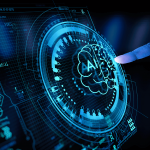Articles
For a better insight into our products and services go through articles on various topics here.
Responsibility towards Ai
AI in Healthcare: How to Ensure Responsible Decision Making?
SID Global Solutions
27 December 2022

Introduction
As artificial intelligence (AI) continues to make its way into healthcare, there is growing concern about how it will be used to make decisions and the implications of those decisions. From diagnostics to treatment to drug discovery, AI is being used more and more to assist healthcare professionals in making decisions.
While AI can be a powerful tool for improving healthcare, it is important to ensure that responsible decision-making is at the forefront when incorporating AI into healthcare.
Responsible Decision – Making in Healthcare with AI
One of the most important aspects of responsible decision-making when it comes to AI in healthcare is transparency.
- Healthcare providers and organizations should ensure that the AI decision-making process is transparent and that patients are informed of the decisions made on their behalf. This will help ensure that the decisions are appropriate for the individual patient and that any potential risks are taken into consideration. Additionally, AI systems should be designed to explain their decision-making processes to allow for better understanding and accountability.
- Another important element of responsible decision making with AI in healthcare is documentation. Organizations should document the processes used to make decisions, as well as any changes or improvements made over time. This will help ensure that decisions are based on the best available data and that they are being made in the most responsible manner.
- It is also important to consider ethical considerations when using AI in healthcare. Healthcare organizations should ensure that their AI systems are not biased or discriminatory and that they are using the best available data. Additionally, organizations should consider patient privacy and security when using AI in healthcare, and take measures to ensure that patient data is being handled in a secure and responsible manner.
- Finally, healthcare organizations should consider the potential implications of their AI decisions. While AI can be a powerful tool for improving healthcare, it is important to consider potential risks and unintended consequences before making a decision. Organizations should ensure that AI decisions are backed up with evidence and are only made when absolutely necessary.
Conclusion
Ultimately, AI in healthcare has the potential to revolutionize the way healthcare is provided. However, it is important to ensure that responsible decision-making is at the forefront of any AI initiatives in order to ensure patient safety and well-being.
By taking the necessary steps to ensure transparency, documentation, ethical considerations, and potential implications, organizations can ensure that they are using AI responsibly and safely in healthcare.









